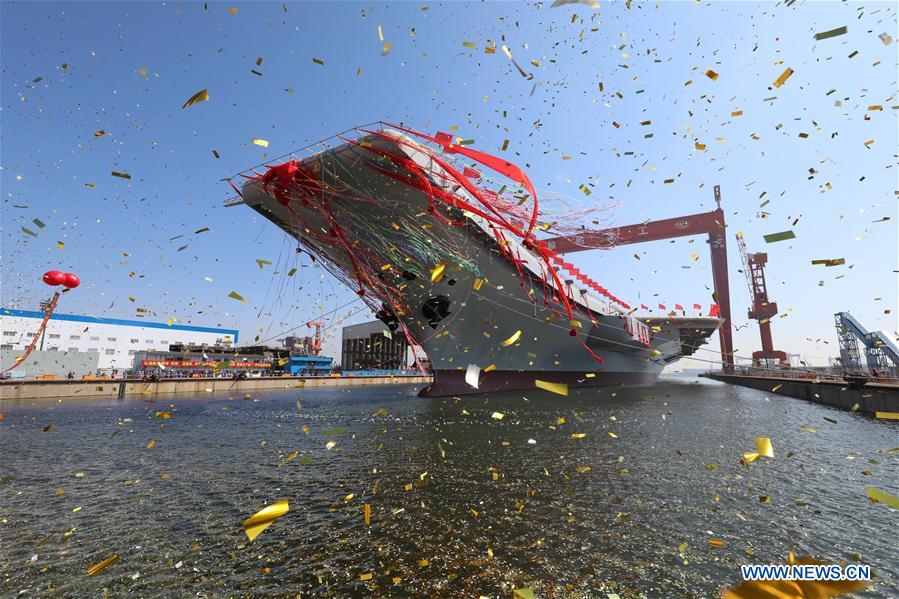
China's second aircraft carrier is transferred from dry dock into the water at a launch ceremony in Dalian shipyard of the China Shipbuilding Industry Corp. in Dalian, northeast China's Liaoning Province, April 26, 2017. The new carrier, the first domestically-built one, came after the Liaoning, a refitted former Soviet Union-made carrier that was put into commission in the Navy of the Chinese People's Liberation Army in 2012. (Xinhua/Li Gang)
DALIAN, April 26 (Xinhua) -- China launched its second aircraft carrier Wednesday morning in a Dalian shipyard in Liaoning Province, northeast China.
The new carrier, the first developed and built by China, was transferred from a dry dock into water at a launch ceremony, starting about 9 a.m. in the Dalian shipyard of the China Shipbuilding Industry Corporation.
It is China's second aircraft carrier, coming after the Liaoning, a refitted Soviet Union-made carrier put into commission in the Chinese People's Liberation Army (PLA) Navy in 2012.
China began building its second carrier in November 2013, with dock construction starting in March 2015.
The main body of the carrier has been completed, with equipment of major systems including propulsion and electricity installed.
Putting the carrier into water marks progress in China's efforts to design and build a domestic aircraft carrier.
After the launch, the new carrier will undergo equipment debugging, outfitting and mooring trials.
The launch ceremony included a performance of the national anthem, ribbon cutting, breaking a champagne bottle on the bow, and steam whistles from ships nearby.
The ceremony was attended by Fan Changlong, vice chairman of the Central Military Commission, as well as leaders of the PLA Navy and China Shipbuilding Industry Corporation.
Ma Xiaoguang, a Chinese mainland spokesperson with the Taiwan Affairs Office of the State Council, said Wednesday he was proud of the great achievement made by the country in modernizing the national defense and military.
"[The move] will help to strengthen our capability to safeguard national sovereignty, territorial integrity, as well as major and core interests," Ma said at a press conference in Beijing.



